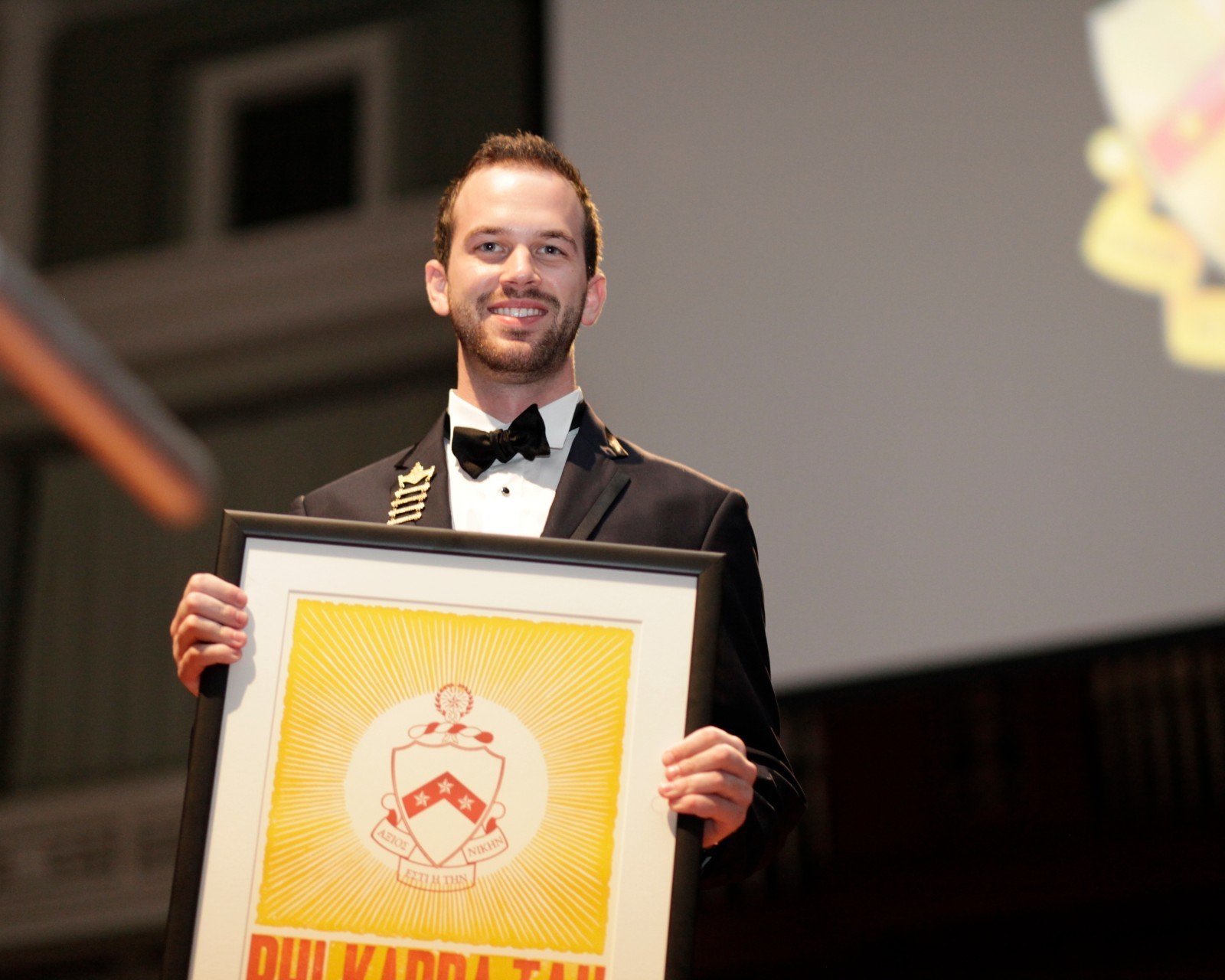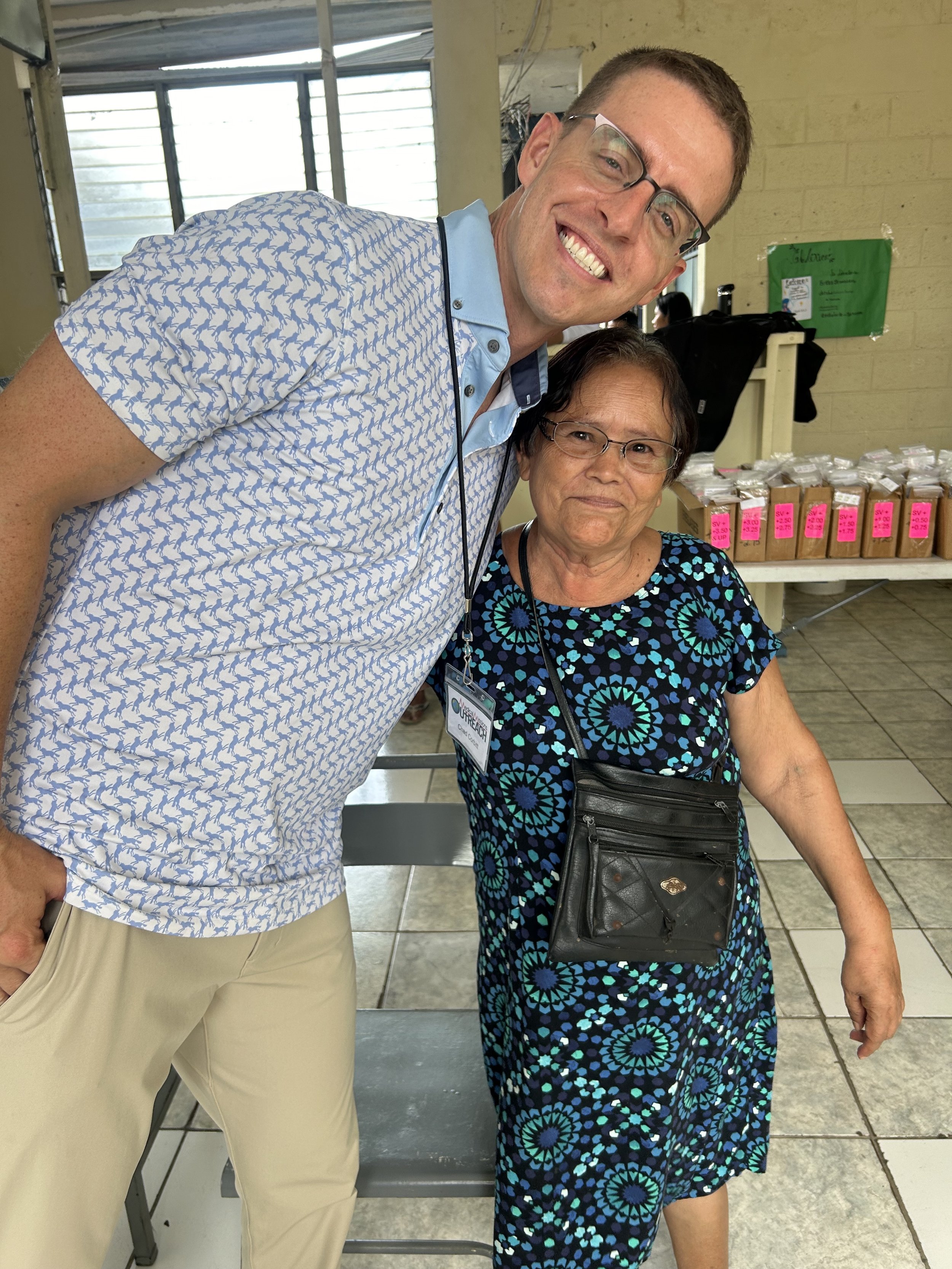Phi Kappa Tau is proud to announce the launch of two innovative national alumni volunteer roles aimed at enhancing chapter support and expanding educational impact: the Chapter Success Specialist and Education Faculty Specialist.
1. Chapter Success Specialist
Designed for experienced alumni, this flexible, project-based volunteer role empowers brothers to directly support local chapters and their Boards of Governors. Specialists will be assigned operational improvement projects—lasting from one to six months—based on their interests, skills, and availability. Areas of support include but not limited to:
Recruitment & Retention
Finance
Chapter Operations
Ritual
Member Orientation
Standards
Expansion
Alumni Engagement
Volunteers can select their focus areas and manage up to 10 chapter assignments at a time. This role is rooted in the historical and successful Domain Director program and builds on its legacy with a focused, project-centric approach that fits today’s time constraints. The goal is to increase a chapter’s exposure to experienced alumni input on areas which a particular chapter needs input and guidance.
2. Education Faculty Specialist
In support of Phi Kappa Tau’s strategic goal to reach 25% of undergraduate members annually through direct programming, the Education Faculty Specialist role will engage volunteer alumni facilitators to deliver high-impact, in-person programs. These volunteers will receive training to effectively lead workshops on:
Ritual based education
Officer transition
Leadership
Men’s Health & Well-Being
Professional Development
Chapter Excellence
Borradaile Challenge
Faculty will serve at national, regional, and local events, acting as mentors and educators to the next generation of fraternity leaders.
Why This Matters:
These new volunteer opportunities reflect our commitment to scalable support, operational excellence, while encouraging a more active, lifelong brotherhood. Whether your passion lies in solving chapter challenges or educating undergraduates, Phi Kappa Tau invites you to bring your skills to the table and make a lasting impact.
Apply now to become a Chapter Success Specialist or Educational Faculty member.
Honoring the Past, Innovating for the Future: Domain Director Role
Since its inception at Phi Kappa Tau’s Eighth National Convention in 1919, the Domain Director program has been a cornerstone of chapter support. For over a century, Domain Directors served as the bridge between the National Fraternity and local chapters, offering mentorship, accountability, and operational guidance. Their contributions helped shape generations of chapter leaders and strengthened Phi Kappa Tau’s presence across the country.
It makes sense, however, that as fraternity operations and alumni volunteer expectations have evolved, so too must our approach. Over the past year, the Fraternity has conducted an in-depth review of its volunteer structure—analyzing feedback from member surveys, historical records, and industry best practices, as well as seeking input from our National Alumni Retention Committee. The findings were clear: alumni volunteer roles requiring broad oversight, undefined outcomes, and heavy time commitments are increasingly unsustainable for many alumni, especially those balancing careers and family obligations.
In response to these insights, the Fraternity made the strategic decision to retire the Domain Director program and introduce the Chapter Success Specialist model—a modern, flexible, and project-focused approach to alumni engagement and chapter support.
While the Domain Director role was defined by geographical oversight and long-term commitments, the Chapter Success Specialist model retains the core purpose of alumni mentorship and chapter guidance—but with added agility. These alumni volunteers will focus on targeted, time-bound projects that align with their specific skill sets and availability, rather than being tethered to ongoing geographic assignments. This model respects each volunteer’s time while still maximizing his impact.
In crafting the new role, Phi Kappa Tau ensured that the spirit and legacy of the Domain Director program will live on. Elements such as collaboration with local Boards of Governors, fostering chapter excellence, and aligning efforts with the Fraternity’s strategic goals have been woven into the new framework.
This evolution represents more than just a structural change—it’s a cultural shift in how Phi Kappa Tau mobilizes its alumni brotherhood to support undergraduates. It allows us to build a bench of passionate, capable alumni ready to be deployed when needed most, ensuring every chapter has access to tailored, high-quality guidance that fits its particular needs. It enables us with the ability to extend our resources and improve chapter performance and education.
As we honor the contributions of our former Domain Directors, we also look forward to the future with confidence, knowing that our new Chapter Success Specialists will carry forward the mission with renewed focus and flexibility.
Frequently Asked Questions (FAQ)
Phi Kappa Tau National Volunteer Roles: Chapter Success Specialist & Educational Faculty
GENERAL
Q1: Why is Phi Kappa Tau launching new volunteer roles?
A: These roles were developed in response to member feedback, volunteer trends, and our strategic priorities. They offer a more flexible, focused, and impactful way for alumni to stay involved and directly support undergraduate chapters and programming.
Q2: Can I apply for both roles?
A: Yes! Volunteers are welcome to apply for one or both roles based on their experience, interests, and availability.
CHAPTER SUCCESS SPECIALIST
Q3: What is a Chapter Success Specialist?
A: A Chapter Success Specialist is a project-based volunteer with deep knowledge of fraternity operations. These volunteers work alongside a chapter and its Board of Governors to improve performance in specific areas like recruitment, finance, member development, and more.
Q4: What kind of projects would I be assigned?
A: Projects are based on operational needs identified by the Executive Offices. Examples include creating a recruitment plan, developing a financial strategy, or training a board. Assignments last between 1 to 6 months and are prioritized based on urgency and chapter needs.
Q5: Is there a time or geographic commitment?
A: There is no set geographic requirement—volunteers may work with any chapter, though proximity can be beneficial. Time commitment depends on the number of projects you choose to take on, with flexibility to match your availability.
Q6: How many chapters can I work with?
A: Specialists may take on multiple projects but are limited to working with no more than 10 chapter projects at a time to ensure quality support and sustainable involvement.
Q7: How is this different from the Domain Director program?
A: The Domain Director program required long-term, regional oversight. The Chapter Success Specialist role offers project-based support with clear outcomes and flexibility, allowing volunteers to make meaningful contributions without extended commitments.
Q8: Will I receive training and resources to support the projects?
A: Yes! Once we receive your application and have a conversation about your experience, expertise and time commitment, we will place you with specific projects and provide the training needed to provide a solution to the local chapter and board of governors.
EDUCATIONAL FACULTY SPECIALIST
Q9: What does an Educational Faculty volunteer do?
A: Educational Faculty members are trained facilitators who deliver Phi Kappa Tau programs at national, regional, and local events. Topics include ritual, officer training, leadership development, men’s health, professional development, and chapter operations.
Q10: What training is required?
A: Volunteers will be provided with facilitation training, ensuring they are equipped to lead workshops with confidence and consistency.
Q11: How often would I facilitate programs?
A: Frequency depends on your availability and the Fraternity’s programming calendar. Faculty members may be invited to lead sessions at conferences, retreats, or campus-based events.
Q12: Who should apply for Educational Faculty?
A: Alumni with experience in public speaking, mentoring, teaching, or facilitation—and a passion for developing young leaders—are encouraged to apply.
APPLICATION & NEXT STEPS
Q13: How do I apply?
A: An application is available soon at: [Insert Application Link]
Q14: What support will I receive as a volunteer?
A: Both roles receive structured training, materials, and ongoing staff support. You’ll also join a network of peers who share your commitment to Phi Kappa Tau’s mission.
Q15: Who do I contact with questions?
A: Email chapterservices@phikappatau.org or reach out to the Executive Offices staff for more information.




















